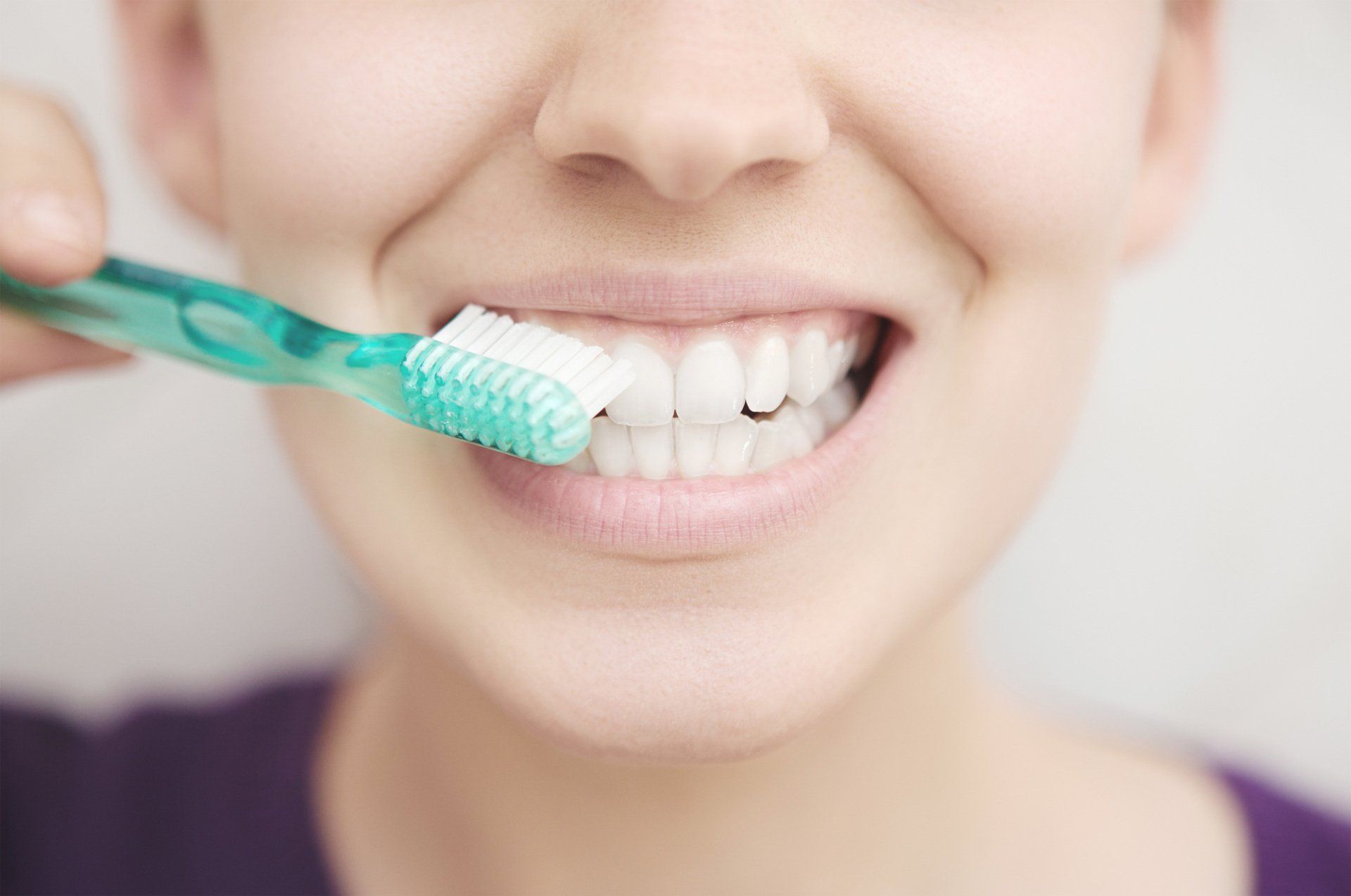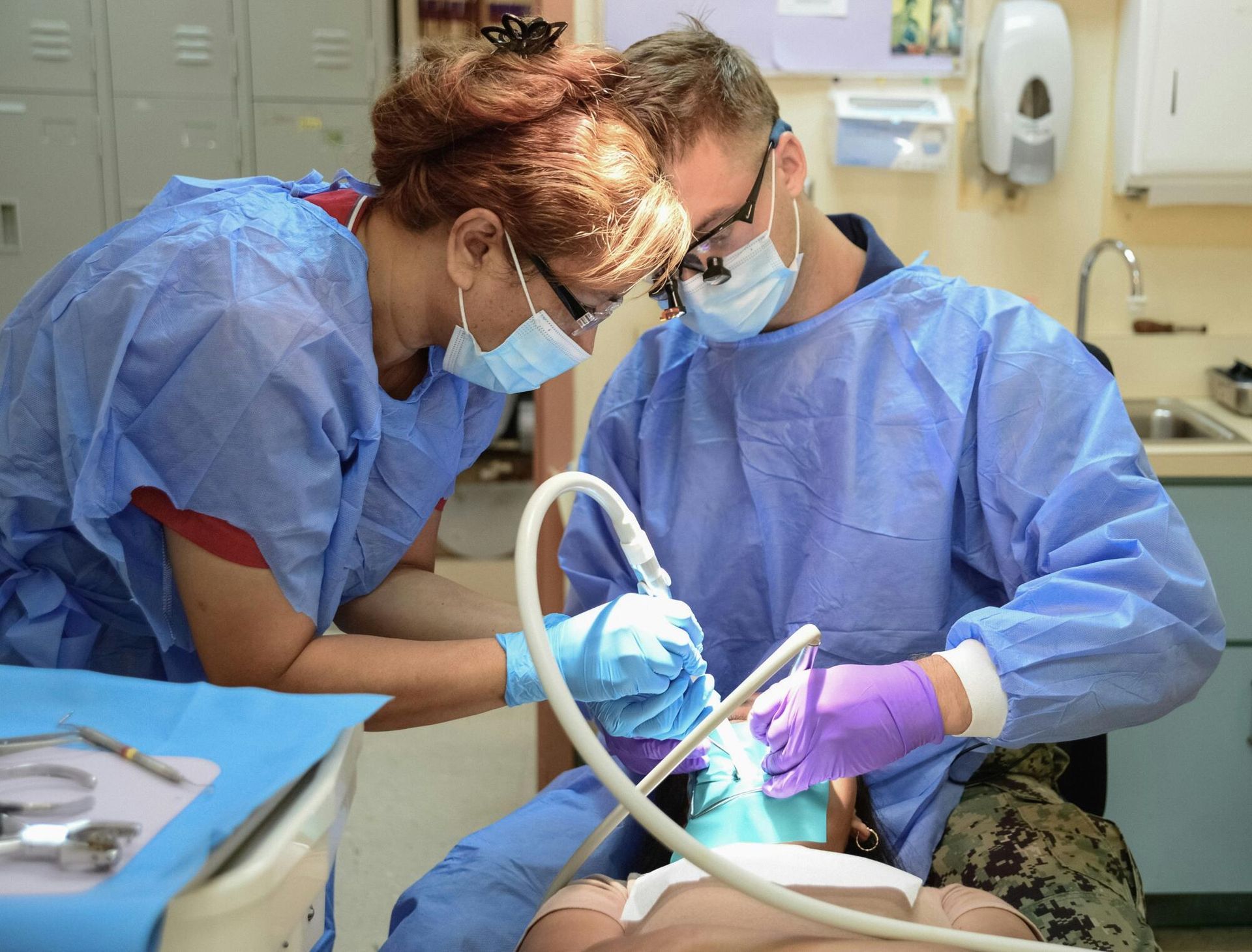How Does TMD Affect Your Oral Health?

Studies estimate that about 5% of the United States population suffers from TMD pain or a TMD disorder.
When you have facial pain, it can be really annoying. But even worse, it can cause actual issues to your oral health (and your overall health) if you do not get the right treatment.
In this guide, we'll walk you through what TMD is, what you may notice, what it does, and what you can do about it.
What Is TMD?
TMD stands for temporomandibular disorder. It is more commonly known as TMJ; however, that really only refers to the temporomandibular joints themselves, not the disorder. These two joints are the two joints that connect your lower jaw to your skull.
These joints allow you to chew, move your face muscles up and down, yawn, swallow, talk, and so much more!
With TMD, a person may experience a lot of pain that can get in the way of normal activities. It can also have other effects as well.
So what exactly is the disorder? There are different classifications of the disorder, but are classified by the following:
Myofascial Pain
This is the most common form of TMD. This causes pain in the jaw, neck, and even the shoulders.
Internal Derangement of the Joint
When this happens, the jaw is dislocated or displaced. This is typically from an injury that causes it to move.
Degenerative Joint Disease
These are diseases like arthritis. This specific arthritis happens in the jaw joint.
While these conditions are all separate joint issues from TMD, they can occur by themselves or altogether.
What Causes TMD?
A lot of times, the causes of TMD are unclear. However, many people feel symptoms of TMD because of having an excessive strain on the jaw joints and muscles around the face involved in talking and chewing.
This strain is most often caused by bruxism. Bruxism is when you clench or grind your teeth habitually, which usually happens at night when you are sleeping. However, this can also happen when you are awake.
While that is a common cause, injuries to the head, neck, and jaw can also cause TMD.
As with any disorder, though, there are other causes that may be linked to TMD as well, such as other diseases and disorders that are comorbid with TMD.
What Are the Signs and Symptoms of TMD?
The signs and symptoms of TMD are pretty straightforward. If you notice any of the following, you may be experiencing TMD:
- Jaw discomfort or soreness
- Headaches (jaw discomfort usually accompanies these)
- Pain spreading behind the eyes or down the back and neck
- Earaches
- Clicking or popping jaw
- Jaw lock
- Limited mouth motions
- Clenching or grinding
- Sensitivity of teeth
- A change in the way the upper and lower teeth fit together
While these are straightforward symptoms, these could also be signs of something else that is happening. It is always best to talk to a dentist to make sure you do not have something else going on!
Treatment Options
If you notice these signs and symptoms and are diagnosed with TMD, there are different options that you have for treatment. However, the treatment depends on several factors, such as your age, your overall health and medical history, your ability to handle medications, and your preference for treatment.
When it comes time for you to decide on treatment, these are the most likely options you will have:
- Resting the temporomandibular joint (TMJ)
- Medications or pain relievers like Advil or Ibuprofen
- Relaxation techniques
- Stress management and coping techniques
- Behavior changes
- Physical therapy
- Wearing a mouthguard to stop teeth grinding
- Ice and hot packs
- Surgery
You are in control of your treatment and what you choose to do. Talking with your dentist can give you a better idea of what you feel will help your specific condition.
How Can TMD Affect Oral Health?
TMD is not something that causes pain. It can also affect other parts of your body, specifically your oral health.
One of the most common issues of TMD is how it affects your teeth and your overall bite. Because those with TMD tend to clench their jaw and grind their teeth when they sleep, their teeth can easily be worn down.
This clenching and grinding can be due to either a jaw disorder, teeth bite, misalignment, or another dental situation.
When someone grinds their teeth and wears them down, the enamel also starts to go away. When this happens, this can increase sensitivity and increase the risk that the person has in terms of tooth decay and tooth loss. The teeth are at more of a risk to fracture and loosen.
Options for You If You Already Have Worn Your Teeth
The treatment options above are great if you are just starting to deal with TMD; however, if you have already worn your teeth down, you may need another treatment option.
While you should prevent any further damage with the treatment options above, you should also see a dentist to fix the damage. They may recommend dental crowns to prevent further damage or dental implants if you have lost teeth or are too damaged.
TMD: What It Is and Your Options
Now that you know more about TMD and your options, you can take steps to prevent it from getting worse.
For starters, you should see a dentist in Burke, VA, to know your next steps. They will likely recommend a treatment plan and help you get your oral health back on track.
Don't wait to fix the problem! Contact us at Dental Care Burke so we can help reduce your pain!












